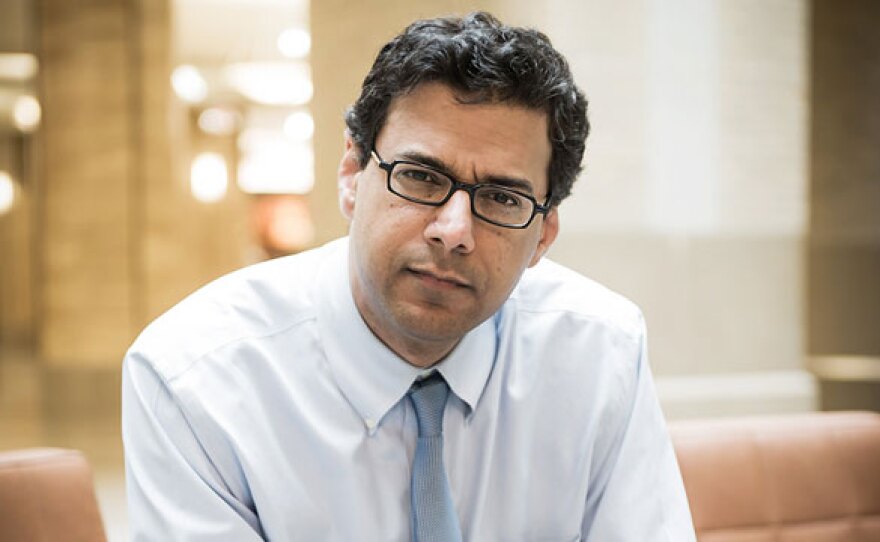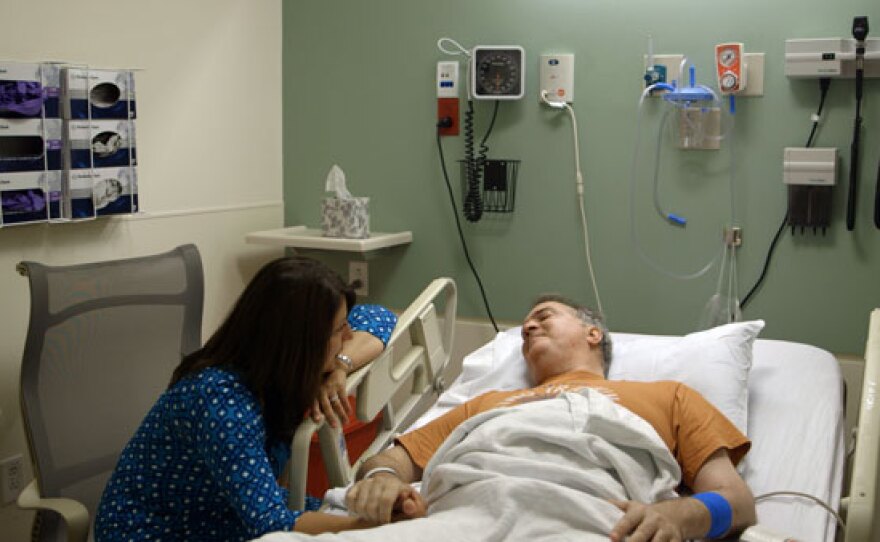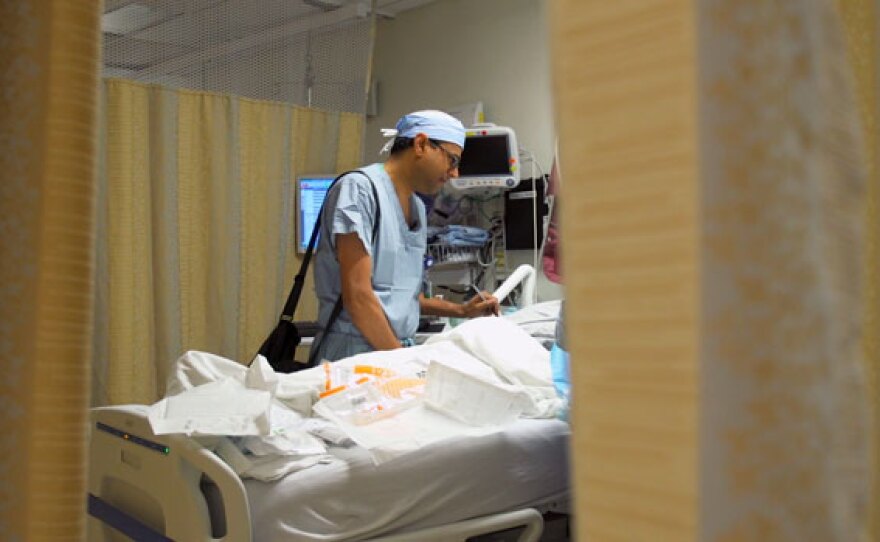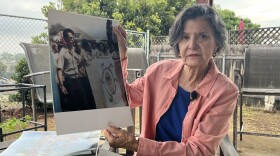Join Atul Gawande to explore the relationships between doctors and patients nearing the end of life.
Death is something we will all one day face. So why is it so hard for doctors to talk with their patients about dying? How can the medical profession better help people navigate the final chapters of their lives with confidence, direction and purpose?
Renowned surgeon and New Yorker writer Atul Gawande explored those questions in his best-selling book, "Being Mortal" (Oct. 7, 2014; Metropolitan Books).
Now, Gawande teams with FRONTLINE on a documentary that brings his personal journey — and the stories of his patients and their families — to life and challenges us all to reexamine how we think about death and dying.

“You don’t have to spend much time with the elderly or those with terminal illness to see, over and over and over again, how medicine fails the people it is supposed to help,” says Gawande, who practices at Brigham and Women’s Hospital and Dana-Farber Cancer Institute in Boston.

“Hope is not a plan,” Gawande adds. “We find from our trials that we are literally inflicting therapies on people that shorten their lives and increase their suffering, due to an inability to come to good decisions.”
Three years in the making, the "Being Mortal" film explores the relationships between doctors and patients nearing the end of life, and shows how many doctors – including Gawande – struggle to talk honestly and openly with their patients who are dying.
From the Indian hometown of Gawande’s father, whose prolonged dying process catalyzed Gawande’s quest to better understand end-of-life care, to the bedsides of patients in Boston who are navigating the ends of their lives, "Being Mortal" is an intimate and revealing journey with relevance to all of us.
The film — directed by Tom Jennings, who previously teamed with Gawande on the 2011 FRONTLINE film "Dr. Hotspot" — also explores the burgeoning art and science of palliative care and the ways in which having a conversation around the question “What are your priorities if your time is limited?” can empower patients to live their lives fully.
The ultimate goal, after all, is not a good death but a good life — all the way to the very end.
Related Articles
Prolonging Life or Prolonging Death? Two Doctors on Caring for the Critically Sick by Jason M. Breslow
How Should Doctors Help Terminally Ill Patients Prepare for Death? by Patrice Taddonio
Love and Cancer at 27 by Tim Molloy
“It’s Very Hard to Come to the Realization That You’re Dying” by Tim Molloy
Podcast: The Long Tail, the Lottery and “Being Mortal” by Patrice Taddonio
A Very Short History of Death by Jason M. Breslow
WATCH ON YOUR SCHEDULE:
This episode of FRONTLINE is available for viewing on demand.
JOIN THE CONVERSATION:
FRONTLINE is on Facebook, Instagram, tumblr, and you can follow @frontlinepbs on Twitter. #frontliinePBS
Follow @Atul_Gawande on Twitter.
CREDITS:
A FRONTLINE production with 2over10 Media. The writer, producer and director is Tom Jennings. The co-producer is Lauren Mucciolo. The correspondent is Atul Gawande. The deputy executive producer of FRONTLINE is Raney Aronson-Rath. The executive producer of FRONTLINE is David Fanning.





